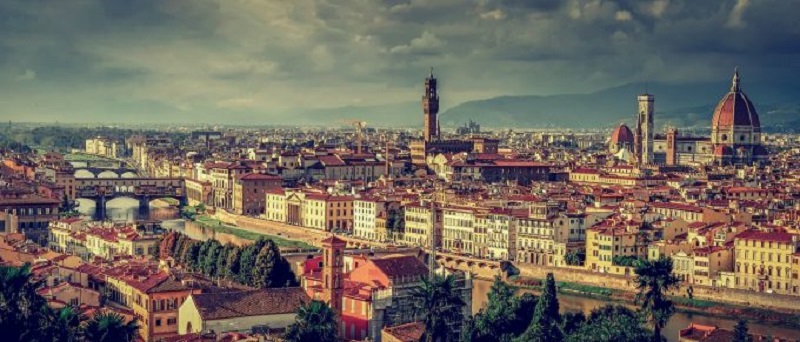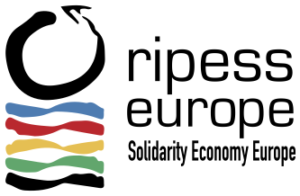SEA’s Matt Wallis was recently invited to spend a week in Italy with an international community of people working to map the Solidarity Economy.
All over the world economic activity is taking place challenging the idea that making as much profit as possible is the only logical way of exchanging goods and services. Initiatives that are owned democratically, with profits being distributed equally to benefit workers and communities, are everywhere. Community supported agriculture projects, community land trusts, credit unions, timebanks, and co-operative housing projects are all examples of people resisting the notion of ‘every person for themselves’, and this activity is happening on a local and global scale.
The problem is that even when this activity is happening in our own towns and cities, it’s usually hard to find out about, unless you happen to be a part of a certain network or group. We know that there are many people who would like to support, or benefit from, economic activity which puts the needs of people and the planet above the maximisation of profit, but they don’t know where to begin. A logical solution to this problem would be to put all of this activity onto a map. Mapping helps people to take action, and directly affects how we make sense of the world around us. Maps also help people and initiatives to find each other, and to work together. So it seems the problem is solved!
Unfortunately, it’s a bit more complicated than that. First, you have to decide what your criteria is for mapping local or national Solidarity Economy activity. Who decides this, and how is it enforced? Then, you need to find the initiatives you want to map – how do you do that? And then there is the technical question – what kind of online platform do you use to create the map? How is the information (or data) about each initiative stored and shared? Who is responsible for making sure the map is up to date? These are all questions that people around the world are trying to answer, and there is some really exciting work emerging. Up to now, a lot of this work has been done without much collaboration, and different approaches are being developed to try and address the same issues. At the Solidarity Economy Association we’ve been working on answering these questions, too, through our Linked Open Data work, which is why we were invited to attend a recent international deep dive of mapping initiatives.
What is a deep dive?
A ‘deep dive’ is when a group of people immerse themselves in a particular subject to come up with new ideas or address a specific problem. This deep dive was organised by The Internet of Ownership and its aim was to make an in-depth analysis of, and to tackle, the existing challenges to developing a common, distributed, semantic mapping process among different mapping initiatives. These mapping initiatives are all committed to making it easier to see that there are a diverse range of human economies all around the world. Together we’re working to challenge the dominant ways of thinking about society and economy.
What did we share, and what did we learn?
Our goals for the deep dive were to:
- learn from the experiences of others in their mapping/data projects
- forge new connections for our networks
- share our experimental work with Linked Open Data
- help others to understand the potential benefits of Linked Open Data
- encourage agreement that this community of mapping initiatives should be pursuing further experimentation with Linked Open Data
It was very interesting to hear from the people who are involved in the day-to-day creation of maps: Alba Hierro from http://pamapam.org in Barcelona; Wendy Brawer from http://greenmap.org/ and Luca Asperius from http://mappa.italiachecambia.org/. Understanding what they do was crucial when thinking about ways we could work together for our mutual benefit.
We also met with academic staff and students from the PHD program on Urban and Regional Planning at the University of Florence for a seminar on Mapping as a Commons. Our short presentation on our Linked Open Data work prompted many interested questions from the academics; one of them noted that maps have been used since time immemorial to assert a particular view of the world.
Italian Solidarity Economy in action
We also visited three very different projects in and around Florence:
- Mondeggi – a large abandoned olive farm that has been occupied and revitalised over the last three years;
- Le Piagge – a social housing estate in the suburbs of Florence where the community is taking common control of a community hall and surrounding piazza; and
- Giardino del Nidiaci – a children’s garden in Florence which has been rescued from developers by the community.
Common to each of these was that their unconventional activities, or governance structures, were allowed by local authorities to continue because their benefit to the community was self evident.
Mondeggi was particularly interesting in this regard: there had been a court order to evict the occupiers, but the local police had refused to carry out the order because they knew the benefits to local people. Local people are encouraged to come and work their own patch of olive trees at Mondeggi: they can choose to do this on their own or to pool resources with others. We saw a group of about 20 sitting around a small fire having lunch together. There are now 200 local people involved in this way.
Next steps for Linked Open Data and Mapping the Solidarity Economy
There was a great deal of discussion about Linked Open Data (LOD) over the course of the week, and by the end of the deep dive there was consensus that the inter-mapping group would support further work in this area. It was agreed that the best approach was to experiment further by converting other datasets into LOD, and to investigate the “joining” of different taxonomies using LOD techniques. (A taxonomy is a set of terms used to describe something – a way of classifying it systematically. The same subject can be described by different taxonomies, which may emphasize different aspects of their subject. For example, one taxonomy may have been designed to emphasize gender-(im)balance in organizations, and another to emphasize governance and power structures within organizations. Two taxonomies may also have minor differences in the terms that they use to describe the same features of the subject.)
Taking this kind of collaborative approach to the problems we’re all working to solve is at the heart of our ethos at SEA and I certainly left Florence feeling confident that our joint efforts to map the Solidarity Economy would yield some great results.




Leave A Comment